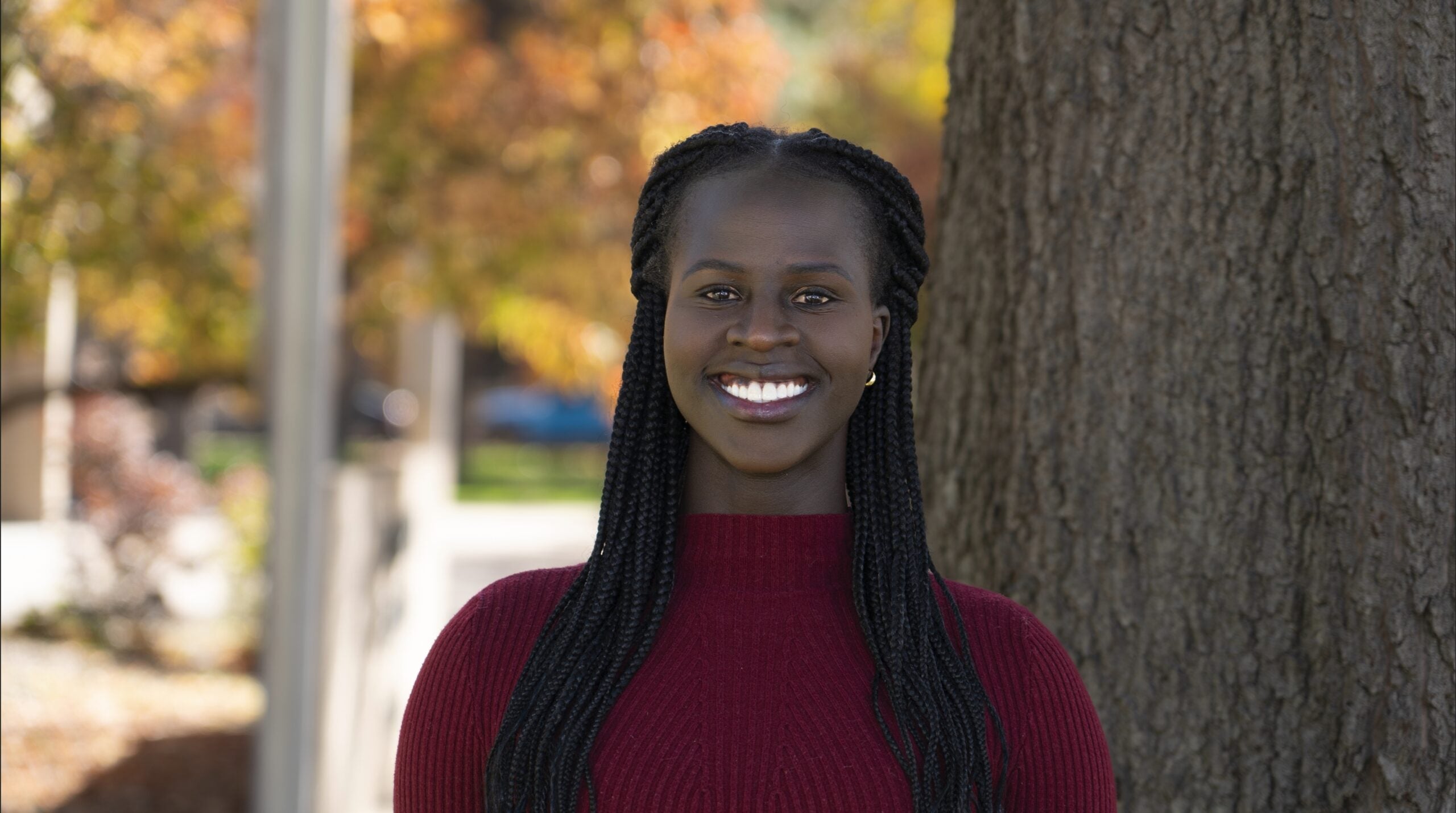
School of Public and Population Health alumni Adhieu Arok graduated with a Master of Public Health in systems analysis and innovation this past December.
During her time as a student, Arok embarked on a research project of her own — researching the potential for generational traumas to be passed down from resettled South Sudanese refugees.
Arok recently received $3,500 in funding from the Northwest Center for Public Health Practice to dive deeper into her research.
“I no longer had to worry about the financial burden of doing research, allowing me to fully immerse myself in the world of research,” Arok said.
Learn more about Arok’s journey as a student and researcher:
Q: How would you describe your research?
A: Since the early 1990s, thousands of South Sudanese refugees that were resettled in refugee camps have been resettled in the United States. It is evident that those refugees have experienced a great deal of trauma from war and resettlement.
Youth from resettled refugee families have elevated risk of developing serious mental health challenges. Although these children were not themselves exposed to war trauma, these types of challenges can be passed down from their parents through generational trauma. There is a gap in the literature on the effects of trauma on the mental health of South Sudanese young adults whose parents were resettled in the USA.
The purpose of this study is to gain a deeper understanding of the lived experiences of South Sudanese young adults who have experienced trauma and their coping strategies. We will conduct 11 key informant interviews with South Sudanese young adults ages 18-24. The qualitative interviews will be analyzed to identify themes and patterns. A qualitative research report will be written that clearly and concisely communicates the findings of the study and their implications for practice and policy.
Q: What originally interested you in this research topic?
A: This research wasn’t just about checking boxes or publishing papers. It was a personal mission — a chance to use my own experiences as a South Sudanese young adult to understand the invisible scars of trauma that mark so many in our community.
Thanks to the incredible support of Dr. Megan Smith and Dr. Ellen Schafer, I could finally dive into a topic that resonated deep within me. This is something I’ve been wanting to do for years and having the opportunity to finally dive deeper into this topic was an honor.
Q: Of the research you have completed so far, has anything surprised you?
A: I’ve been continually surprised by the depth and unexpected nuances revealed within my own community. Each interview unveiled unique experiences, shattered preconceived notions, and forced me to confront uncomfortable truths.
I’ve witnessed resilience blossoming in unexpected corners, grappled with complex intergenerational dynamics, and stumbled upon insights about our collective past that shed light on our present. This journey has been a constant unlearning and relearning, a humbling reminder of the rich tapestry that is our community, far more intricate than I ever imagined.
Q: How did your MPH studies help you through this research process?
A: Core courses like epidemiology and biostatistics equipped me with the tools to effectively collect and analyze data, ensuring my research is rigorous and evidence-based. Courses on systems analysis and global health helped me understand the specific needs and context of the South Sudanese community I’m researching, ensuring my work is relevant and culturally sensitive. Finally, classes on research methodology and qualitative research provided me with the practical skills to conduct interviews, analyze narrative data, and craft a compelling research narrative.
Q: What advice do you have for students interested in conducting their own original research project?
A: The research process is a long and fascinating process of discovery. It will expand your mind and you will learn about the world around you in ways that you couldn’t possibly imagine.
Conducting your own research gives you the flexibility to be the captain of your own scientific ship. You’re not bound by pre-defined experiments or someone else’s agenda. This gives you the opportunity to make it your own!
Q: What do you enjoy most about being a researcher?
A: Before conducting this research, science felt like a distant world and too complex for me to conduct on my own. This research project stripped away the mystique, revealing the messy, exhilarating process of discovery. I navigated the complex pathways of literature reviews, learned to speak the language of coding and analysis, and even mastered the art of crafting questions that pierced through the surface.
Every hurdle overcome, every unexpected finding, every aha moment became a testament to my growing confidence and competence as a scientist.
When the research is complete, Arok hopes to complete a manuscript for publication. Check back with SPPH news to see where this research takes Arok!